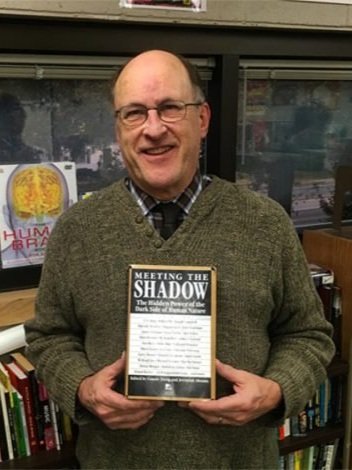Our Culture of Illusion
By Bill Bornschein | February 7, 2012
In my theology class we are studying the classic spiritual journey, a widespread archetypal pattern. The pattern is similar to the Hero’s Journey as described by mythologist Joseph Campbell and the spiritual journey explored by poet Robert Bly. In all three of these examples the focus is on the individual and a personal quest. With this blog post, I’d like to extend the insights to our broader society. First, here is a quick overview of the individual quest and then the application to the broader culture.
The individual journey begins with an Apollonian ascent, the first thirty years of life characterized by rising power, idealism, and egocentrism. From film, the “I’m king of the world” scene in Titanic comes to mind, as does the invincible, “it’s only a flesh wound” Black Knight from Monty Python and the Holy Grail. Eventually the ascent of youth is tempered by the realization of limits. At this point, the journey can go in one of three directions. The first is the attempt to maintain the ascent, reject the reality of limits, and continued reliance on heroic virtues that no longer work. This path produces the Old Fool who just doesn’t get it. The second path is the embittering journey of the individual who recognizes the existence of limits but rejects them and searches for someone to blame. This path produces the negative and cynical individual. The final option is the wisdom journey, which involves a descent, a dark night of the soul grounded in the acceptance of limits. It produces the Holy Fool. It is the Abrahamic journey into the unknown and results in what Alan Watts characterized as the wisdom of insecurity. Here we find the Socratic ideal of the person who knows he doesn’t know and can make his peace with that. This is the person who can, in the words of Becker, “fashion something—an object or ourselves—and drop it into the confusion, make an offering, so to speak, to the life force.”
Turning to our society, where do we stand? I maintain we are very much in the crisis of limits, limits born of scarcity of resources and also a scarcity of new vision. Coming out of World War II the American Century was characterized not only by expansion, but pedal to the metal expansion. More, faster, and better became the watch words for a western culture bent on ever higher material standards. Now we are realizing the truth of Edward Abbey’s famous quote: “Growth for the sake of growth is the ideology of the cancer cell.” Our Apollonian ascent is melting our Icarian wings. Will we continue our attempt to ascend and tumble into the sea or attempt a controlled glide downward?
Surveying the political landscape does not engender much hope for the latter. Both political parties talk the talk of returning to business as usual, growing the economy and expanding infinitely. Writ large, this is the Old Fool who just doesn’t get it. The second option, the embittering journey characterized by cynicism and blaming others, is much in evidence. The polarization on almost every issue requires a demonizing of the other and, as Becker has shown, results in violence. The third option, the wisdom journey that embraces limits, is not yet part of the official discourse that you hear from public officials and their media outlets.
And yet, there are perhaps reasons for optimism and hope that we may still “get it.” There appears to be a growing movement toward localization of life processes, community gardens, and farmer’s markets for example. The general disillusionment with both political parties, all three branches of government, and Wall Street portend a potential for a new vision. New voices are emerging that give lie to the culture of illusion. Two of these voices that I’ve been following recently are journalist Chris Hedges, whose columns can be found at truthdig.com, and psychologist Brad Peters at Modern Psychologist
One final trait of the wisdom journey of the Holy Fool resonates with Ernest Becker’s analysis. For Becker, our crucial dilemma is that we are both godly and creaturely, blessed with an almost infinite spirit and intellect housed in a finite body. In the words of author Terry Pratchett, “Humans are the place where the falling angel meets the rising ape.” The Holy Fool, having ridden the Apollonian rocket skyward and returned to earth safely is at home with paradox, the central human condition.

